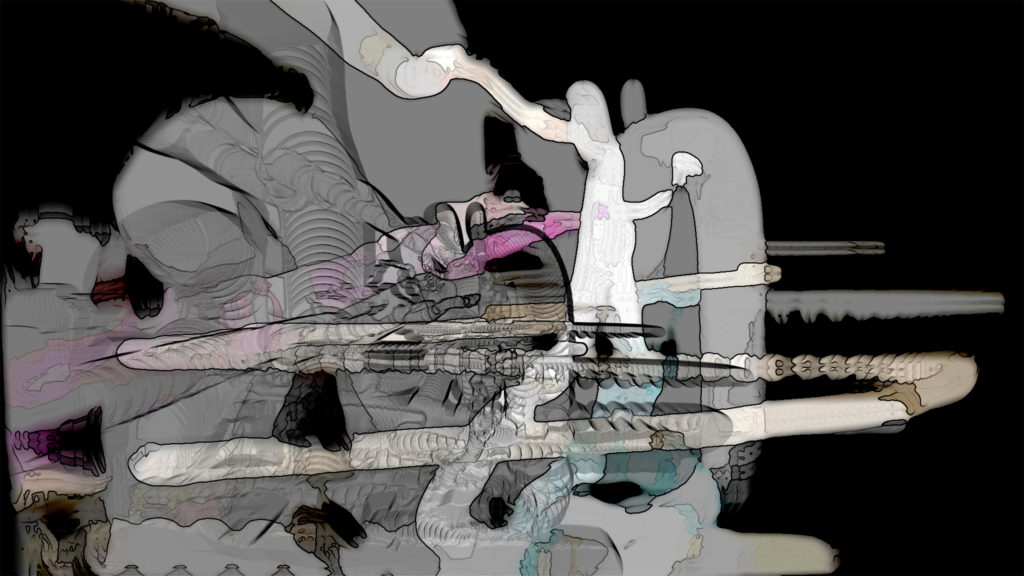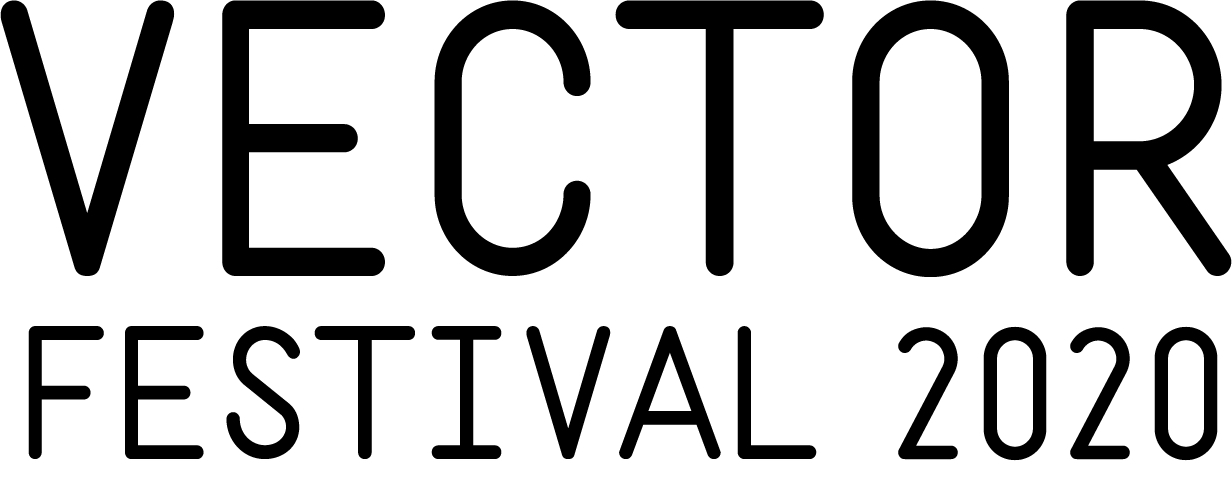Across a dynamic range of virtual exhibitions, performances, panels and workshops, Vector Festival 2020: Online Edition (July 16–23, 2020) will unite the work of more than 60 Canadian and international artists. This year’s festival, curated by Katie Micak and Martin Zeilinger, explores experiences of isolation, distanced interaction, virtual togetherness, digital art-making and curation, and emerging forms of community, solidarity and care.
Now in its eighth year, InterAccess’s annual Vector Festival will be hosted online for the first time. All Vector events will be presented for free or pay-what-you-can to encourage wide participation while creating new opportunities for community engagement, exploration and learning.
On opening night, Vector Festival 2020 will present Intern Purgatory: A Covid-19 VRChat Story, a performance by Toronto artists Cat Bluemke, Jonathan Carroll and Iain Soder of the artist collective Tough Guy Mountain. In this work, the state of the world forces three artists to become unpaid interns inside their own virtual reality project. Their fantastical new employers drop the worst crisis they have ever suffered right onto the new intern’s live/work cubicle desks. They must now stop a wild brand on a rampage or suffer the consequences of a changing world around them. This performance, occurring in VRChat and streamed to Twitch, is about a place, and an app, called “Intern Purgatory.”
Masks have become popular and expressive means of undermining surveillance technologies. In the hybrid lecture-workshop session Resistance Strategies in the Age of Surveillance, artists María Angélica Madero and Joselyn McDonald will reflect on the evolution of surveillance over the last century and review strategies that artists and technologists are using to resist facial recognition surveillance. Madero will explore the contemporary significance of masks—shielding the respiratory system from viral infection, protecting protestor anonymity and weathering climate change-induced natural disasters—and will teach participants how to create augmented reality face filters. Joselyn McDonald will lead a tutorial, using flora and other readily available organic materials, to create masks that undermine an algorithm’s ability to recognize a human face. The session will conclude with the opportunity for participants to make their own anti-surveillance masks.
In a time when physical distancing measures have interrupted experiences of art and live music, Meghan Cheng and Cheryl Ockrant’s Luna examines the possibilities for connection and shared experiences in this interactive and abstract virtual environment. Luna breaks down the distinction between performer and audience member in a livestreamed user-driven concert experience. In this piece, a dark space is activated with light and colour through audio-reactive generative visuals. Using commands in Twitch chat, the audience can sample audio recorded from the unQuartet, a Toronto-based improvising string trio, creating a real-time collaborative audiovisual experience.
All festival events will be hosted on a new, custom built online exhibition platform designed by Toronto artist Jordan Shaw. Using real-time data visualization, the site translates the excitement and energy of the festival experience into the virtual sphere.

 Meghan Cheng, Luna, 2020. Courtesy the artist.
Meghan Cheng, Luna, 2020. Courtesy the artist.



